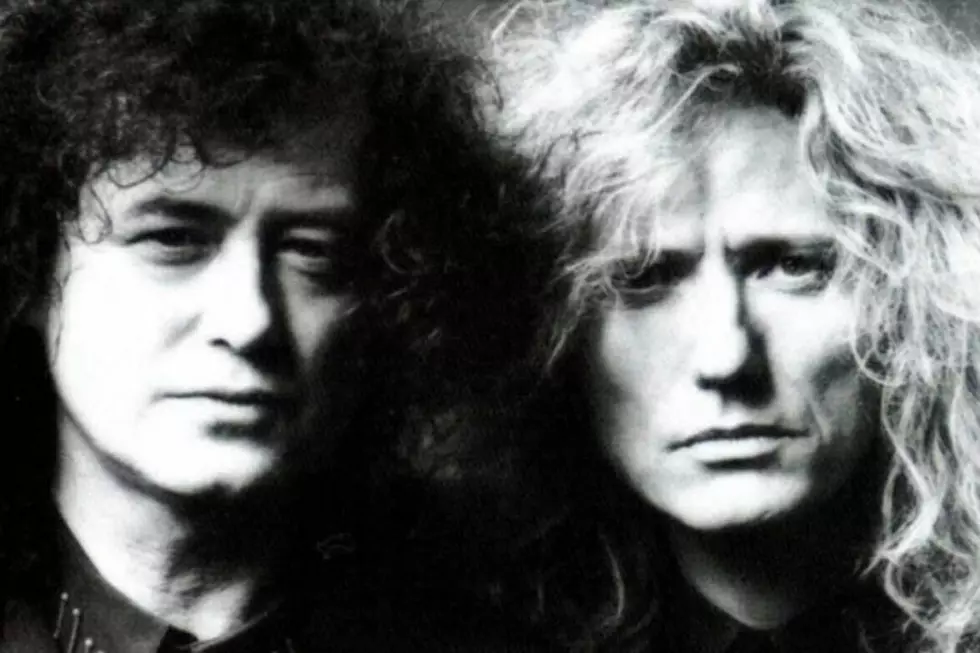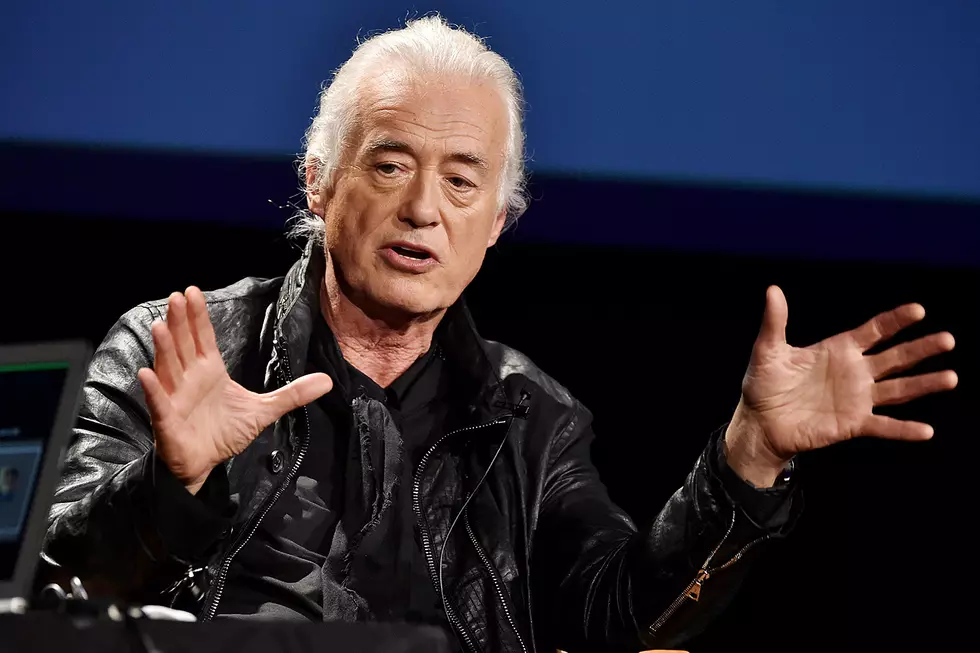
When David Coverdale and Jimmy Page Made an Album Together
Jimmy Page and David Coverdale, two veterans eager to prove themselves outside of their famous bands, joined forces on the album Coverdale/Page, which was released on March 15, 1993.
Page had spent most of the previous decade-plus fitfully searching for his post-Led Zeppelin home, managing to release only three albums: two by the Paul Rodgers-fronted band the Firm, and his 1988 solo project Outrider.
Coverdale, meanwhile, had disbanded Whitesnake near the peak of their late-'80s success, tired of trying to fit into an industry where "the peripheral aspects of being a musician – the videos, the press, the makeup – were suddenly becoming more important than writing and singing," as the former Deep Purple singer recounted in Light & Shade: Conversations With Jimmy Page.
With both artists signed to Geffen Records, it didn't take long for A&R executive John Kalodner to suggest the pair work together. Ignoring his former bandmate Robert Plant's public "David Coverversion" shots at Coverdale, Page agreed to meet to see how they got on socially.
As he told Brad Tolinksi in Light & Shade, "I figured that if we couldn't carry on a conversation, there would be no way we'd be able to write together. As it turned out, we got along famously."
Watch Coverdale/Page's 'Pride and Joy' Video
That chemistry extended to the songwriting process too. As Coverdale told Jam magazine, the duo came up with between 50 and 60 songs, including one ("Shake My Tree") based on a guitar riff Page had tried to convince his Zeppelin mates to develop for their final album, 1979's In Through the Out Door. "No one except [drummer John Bonham] really seemed to understand what do do with it, so I filed it away," Page later noted. "I decided to pull it back out, and David grasped it instantly."
Coverdale/Page was a platinum success, and its first single, "Pride and Joy," was a strong radio and MTV hit, but the duo did suffer a significant amount of "Zeppelin clone" criticism. There is definitely some forgettable, generic blues-rock riffing and wailing to be found here, but also some fully respectable advancements on the genre, such as the swirling guitar orchestrations of "Over Now," the frantic riffing of "Absolution Blues" and in particular, the alternately hypnotic and driving grooves of "Easy Does It."
The main fault of the album is that, unlike Plant's solo records, Page stuck too closely to territory carved out by his former band, making unfavorable comparisons to some of the greatest achievements in rock history unavoidable.
Any further chance to establish themselves as a distinct entity was dashed when a planned world tour was reduced to just a handful of dates in Japan, with Coverdale telling Jam, "The whole arrangement for the Coverdale/Page project was to go directly to the theaters, to the stage, and nothing, not even a whisper, came from Jimmy’s manager when the album was released. It was one of the singularly most frustrating periods of my professional career."
The following year, Page reunited with Plant for the successful No Quarter album and tour, signaling an abrupt end to this team-up, but both he and Coverdale look back fondly on their time together. "If I got a call from him, asking if I'd work with him on a solo album or anything, I'd be there in a heartbeat. I think the world of the guy and I wish him well in every aspect of his life," Coverdale explained. "There was no BS in any respect or in how we executed," Page summarized. "I wanted to show that I was still alive and kicking, and in that regard it was a total success."
Led Zeppelin Solo Albums Ranked
Whitesnake Video Star Tawny Kitaen's Rock ‘n’ Roll History
More From 98.3 The Snake










